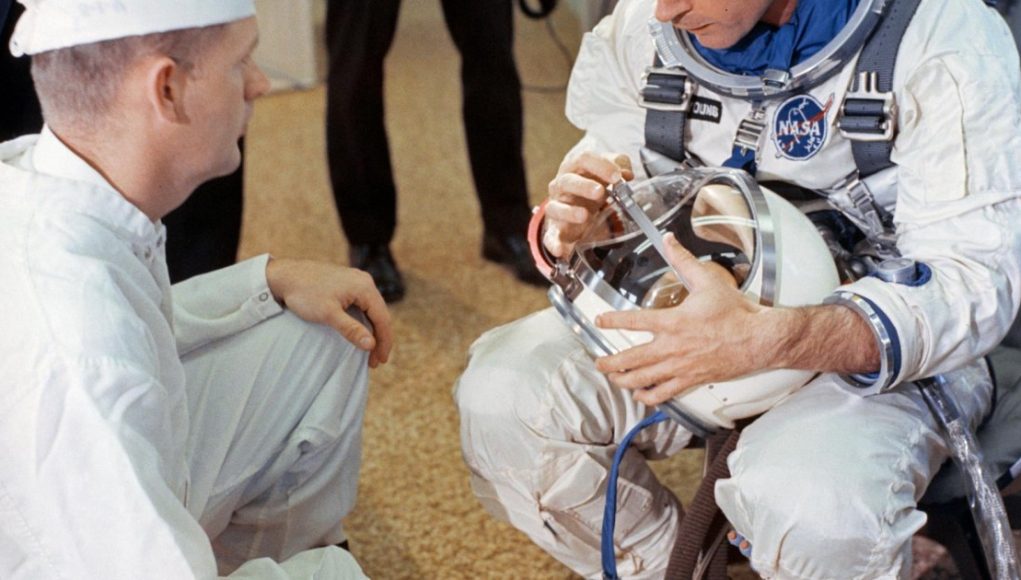In 1965, a chance confession by an astronaut lead to a dramatic fallout encompassing NASA, congress, and a change to how people are fed in space. John W. Young had traveled on the Gemini III mission to test out technology for moon landings, and in discussing the flight with the news media a few days later, he dropped a bombshell: “I hid a sandwich in my spacesuit,” he confessed.
Now, NASA historian Jennifer Ross-Nazzal has shared her research on this strange and dramatic tail of cosmic contraband. Astronauts are not supposed to bring any unauthorized objects onto a space mission, as they can have unexpected effects — the sandwich, for example, could have released crumbs which could have gotten stuck in the delicate electronics of the spacecraft and caused problems.
Young decided to flout the norms and bring along a corned beef sandwich anyway, though, because the food given to astronauts at the time was, according to him, “barely edible.” It consisted entirely of dehydrated items that had to be rehydrated with cold water, resulting in strange and unappetizing edibles.
Please enable Javascript to view this content
Two hours into the Gemini flight, Young created a beef of his own when he pulled the sandwich out of the pocket of his spacesuit and offered it to his commander, Virgil I. “Gus” Grissom. The pair tried nibbling at the sandwich but found that the rye bread crumbled and created crumbs, so it had to be stowed back in a pocket far later consumption.
And that might have been that, except for Young’s remark at the press conference. Government officials were incensed, particularly Representative George E. Shipley, and NASA was called to account.
George Mueller, who was then the associate administrator for Manned Space Flight, had to answer to Congress for the illicit snack. He assured the congregational representatives that he had, “taken steps, obviously, to prevent recurrence of corned beef sandwiches in future flights.”
Mueller also pointed out that fortunately no harm had come from this unauthorized snacking in delightful terms: “There was no detriment to the experimental program that was carried on, nor was there any detriment to the actual carrying out of the mission because of the ingestion of the sandwich.”
Young wasn’t officially reprimanded for his secret snack, but astronauts were warned not to pull that kind of stunt again. The incident did make it clear though just how much the quality of food matters to astronauts. When they are on space missions — especially the kinds of months-long trips to the International Space Station that astronauts typically take today — the variety and palatability of food available to them is an important consideration in their mental and physical wellbeing.
As well as a wider variety of prepackaged meals, astronauts are sent supplies of fresh fruits and vegetables when possible, which many describe as a highlight that they greatly look forward to. They also grow their own foods like radishes, which provides both a nutritional boost and a psychological boost of having grown something themselves.
It’s also well known that astronauts love condiments, as being in space can dull taste experiences so covering foods in hot sauce or ketchup is popular. They might even be able to create their own hot sauces in the future, as there are also experiments into growing chili peppers on the ISS.



![Just released: our 3 best dividend-focused stocks to buy before April [PREMIUM PICKS]](https://exeltek.com.au/wp-content/uploads/2025/03/Cornwall-walks-1200x800-300x194.jpg)



